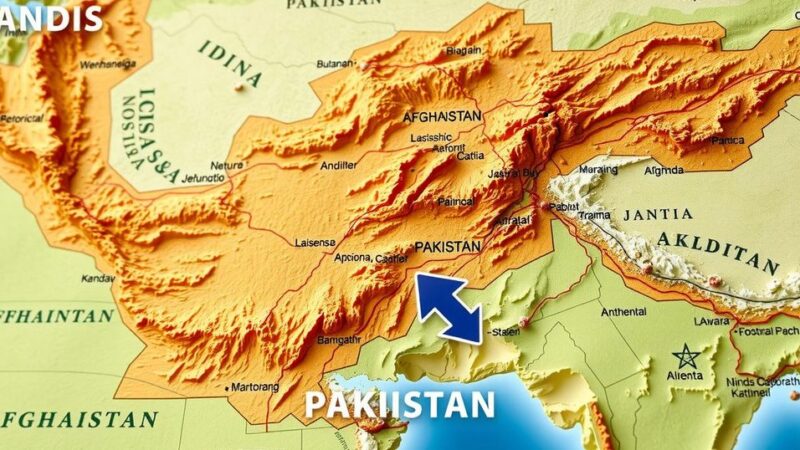Syria and Lebanon’s leaders have committed to improving relations during Prime Minister Najib Mikati’s first visit to Damascus since 2011. They emphasized mutual interests concerning stability, refugee issues, and border management, marking a potential turning point in historically tense diplomatic ties.
In a significant diplomatic development, Syria’s newly appointed leader Ahmed al-Sharaa and Lebanese Prime Minister Najib Mikati have agreed to strengthen their bilateral ties during Mikati’s recent visit to Damascus, marking the first such visit since the onset of Syria’s civil war in 2011. Both leaders emphasized the necessity of close collaboration to address mutual interests, indicating a potential shift in historically fraught relations exacerbated by complex regional issues. Sharaa expressed optimism for a renewed era of stability in Lebanon following the election of President Joseph Aoun, underscoring Syria’s intention to maintain impartiality in Lebanese affairs.
Mikati articulated the importance of establishing new ties based on “mutual respect, equality and national sovereignty,” suggesting a collaborative approach to longstanding challenges, including the substantial presence of Syrian refugees in Lebanon since the war began. The influx has been a burden on Lebanon’s already struggling economy. Both parties have committed to addressing the urgent need for the safe return of these refugees while fostering discussions to define the land and maritime borders between their two nations.
Additionally, the leaders agreed on the need for tighter control over their shared border to combat smuggling, a concern heightened by recent border tensions. The meeting comes in the wake of increased international engagement with Syria, as several foreign dignitaries have visited Damascus to extend diplomatic overtures following years of isolation.
The relationship between Syria and Lebanon has historically been complex, predominantly shaped by Syria’s military and political influence over Lebanon, especially during Lebanon’s civil war from 1975 to 1990. The Syrian presence in Lebanon continued until 2005 after mass protests prompted Syrian troop withdrawal. The recent visit by Prime Minister Mikati is significant as it signals a possible normalization of relations amidst changing political dynamics in both countries, particularly after the recent leadership shifts in Lebanon and the fallout of the Syrian civil war.
The meeting between Syria’s new leadership and Lebanon’s Prime Minister signifies an important step toward improving bilateral relations after years of tension. With a focus on mutual respect and cooperation, both nations aim to address pressing issues, including the refugee situation and border security. As Lebanon seeks to stabilize its political landscape and recover from economic crisis, ongoing dialogue with Syria presents both opportunities and challenges for regional stability.
Original Source: www.france24.com







